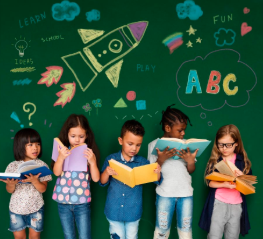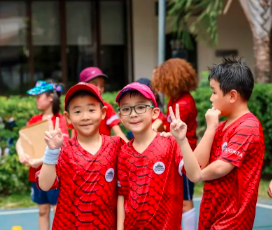Preschool is more than just a place for children to play—it’s a structured environment where young learners begin to develop a foundation for lifelong success. Through a balance of guidance, interaction, and exploration, preschool programs help children acquire essential skills that support their growth across multiple areas. These early experiences set the stage for academic progress, emotional well-being, and social confidence.
1. Language and Communication Development
One of the most important skills children develop in preschool is language. Through storytelling, singing, conversations, and group activities, they expand their vocabulary and learn how to express themselves clearly. Teachers encourage verbal interaction, helping children understand sentence structure, active listening, and conversational turn-taking.
2. Social and Emotional Skills
In a preschool setting, children learn how to interact with others in respectful and meaningful ways. They practice sharing, cooperating, taking turns, and resolving conflicts peacefully. These experiences strengthen their emotional intelligence, build empathy, and help them develop lasting friendships.
3. Fine and Gross Motor Skills
Preschool activities are designed to support physical development. Children engage in tasks like cutting paper, drawing, stacking blocks, and using puzzles to improve fine motor coordination. Outdoor play, dancing, and structured games help develop gross motor skills such as balance, coordination, and strength.
4. Early Math and Number Concepts
Preschool introduces children to basic math concepts through engaging activities. They learn to count, recognize numbers, sort objects by size or color, and begin to understand patterns. These hands-on experiences lay the groundwork for later math skills.
5. Creative Expression and Imagination
Creative play is a central part of preschool learning. Children explore art, music, and dramatic play to express their ideas and emotions. These activities nurture imagination, enhance problem-solving abilities, and foster an appreciation for creative thinking.
6. Cognitive and Problem-Solving Skills
Through puzzles, games, and discovery-based learning, children begin to think critically and solve problems independently. Teachers guide them to ask questions, make predictions, and test their ideas, supporting the development of logical thinking and curiosity.
7. Self-Help and Independence
Preschool encourages children to take on age-appropriate responsibilities. From cleaning up after playtime to putting on their own coats, these tasks build independence and self-confidence. Children also learn to follow routines and manage transitions, which prepares them for kindergarten and beyond.
8. Listening and Attention Skills
Structured group activities, such as story time or circle time, help children practice focusing on instructions and attending to tasks. These skills are essential for academic settings and help young learners develop patience and perseverance.
Conclusion
Preschool programs provide a nurturing environment where children acquire key life skills that support their overall development. With a focus on communication, creativity, collaboration, and self-reliance, these early learning experiences give children the tools they need to thrive in school and beyond. Choosing the right preschool can make a lasting difference in a child’s confidence and enthusiasm for learning.














